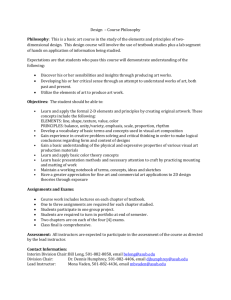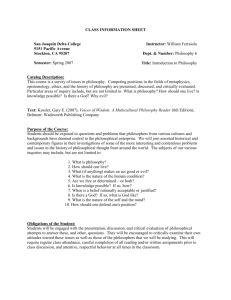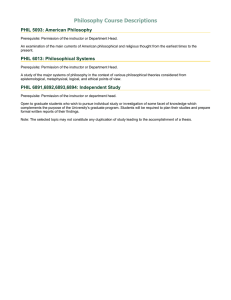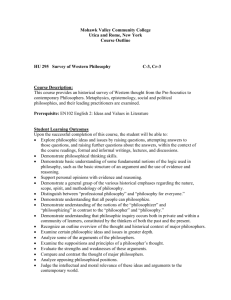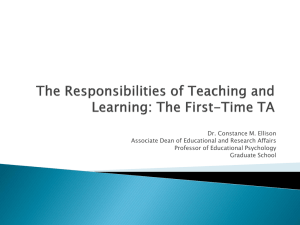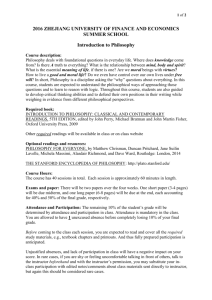Introduction to Philosophy
advertisement
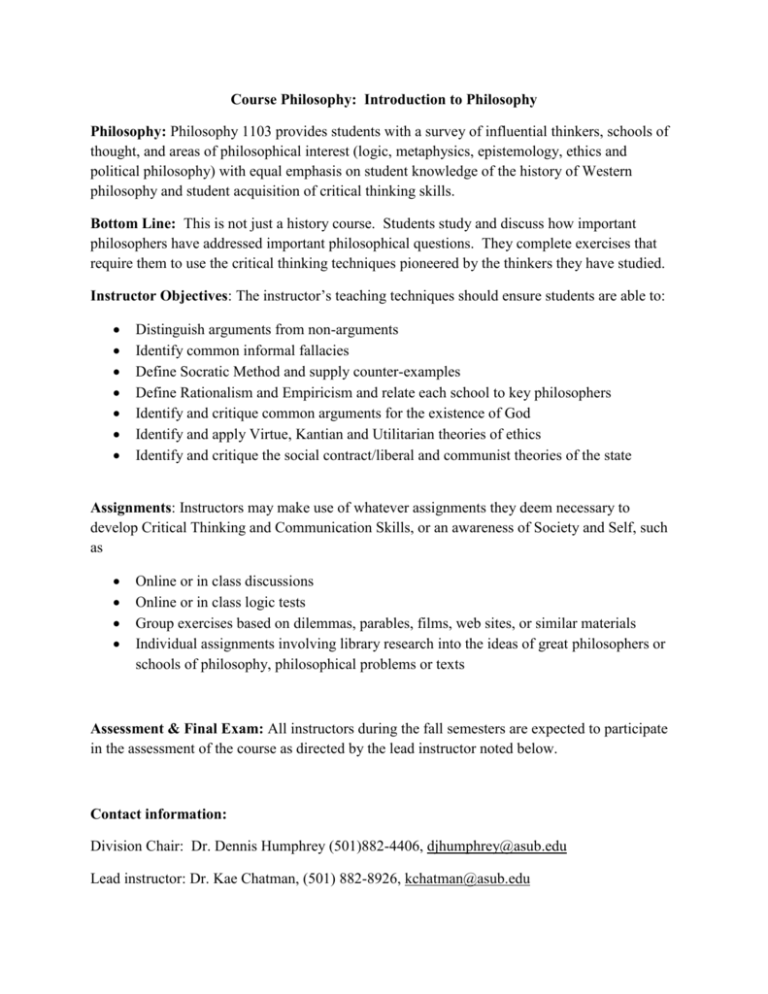
Course Philosophy: Introduction to Philosophy Philosophy: Philosophy 1103 provides students with a survey of influential thinkers, schools of thought, and areas of philosophical interest (logic, metaphysics, epistemology, ethics and political philosophy) with equal emphasis on student knowledge of the history of Western philosophy and student acquisition of critical thinking skills. Bottom Line: This is not just a history course. Students study and discuss how important philosophers have addressed important philosophical questions. They complete exercises that require them to use the critical thinking techniques pioneered by the thinkers they have studied. Instructor Objectives: The instructor’s teaching techniques should ensure students are able to: Distinguish arguments from non-arguments Identify common informal fallacies Define Socratic Method and supply counter-examples Define Rationalism and Empiricism and relate each school to key philosophers Identify and critique common arguments for the existence of God Identify and apply Virtue, Kantian and Utilitarian theories of ethics Identify and critique the social contract/liberal and communist theories of the state Assignments: Instructors may make use of whatever assignments they deem necessary to develop Critical Thinking and Communication Skills, or an awareness of Society and Self, such as Online or in class discussions Online or in class logic tests Group exercises based on dilemmas, parables, films, web sites, or similar materials Individual assignments involving library research into the ideas of great philosophers or schools of philosophy, philosophical problems or texts Assessment & Final Exam: All instructors during the fall semesters are expected to participate in the assessment of the course as directed by the lead instructor noted below. Contact information: Division Chair: Dr. Dennis Humphrey (501)882-4406, djhumphrey@asub.edu Lead instructor: Dr. Kae Chatman, (501) 882-8926, kchatman@asub.edu
